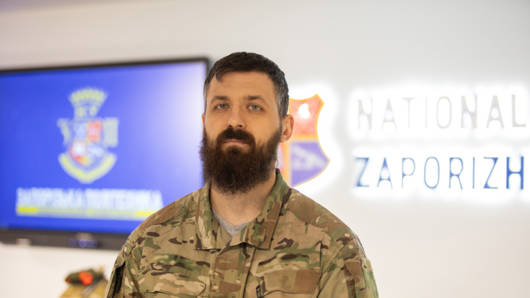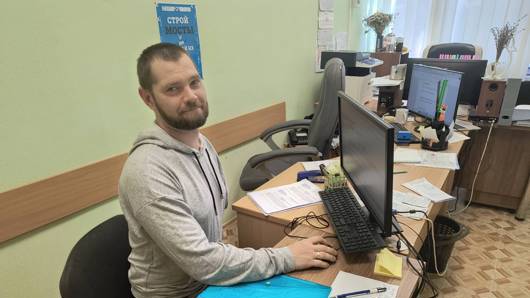At the event “Drivers of Change: Business for and about People,” held on 10 December in Kyiv, Oleg Davydenko, the Director of the Corporate Communications Department at Metinvest Group, talked about how the business is adapting to the return of war veterans.
Representatives of government, business and NGOs discussed barrier-free issues and the implementation of inclusivity and accessibility standards. Currently, Ukraine is home to more than 3 million people with disabilities, including over 300,000 who have acquired this status since the beginning of the full-scale invasion. The event was organised by the United Nations Global Compact and the United Nations Development Programme in Ukraine as part of the “Implementation of Social Development Goals in Ukraine” project, an initiative aimed at facilitating the country’s post-war recovery and making progress towards European integration standards.
Davydenko participated in the “Business for Veterans: From Adaptation to Professional Growth” panel. In addition to him, the discussion featured representatives of the Association of ATO (Anti-Terrorist Operation) Veteran Entrepreneurs, the Topsens psychological assistance centre and the Evo IT company.
The head of Metinvest’s corporate communications noted that the Group does not indicate in its vacancies whether they are intended for veterans. He said: “For us, the reintegration of former military personnel is not about separating veterans from the team, but about creating fair conditions for everyone and ensuring absolute equality among employees. We aim to create a unified ecosystem with equal conditions for everyone. That is why we do not specify that a vacancy is for veterans. Instead, we show that we are open and ready to hire all veterans.”
Davydenko said that Metinvest faced the challenge of developing an effective reintegration system for veterans. Over the past decade of war, more than 10,000 Group employees have been mobilised. Currently, approximately 8,000 employees are serving in Ukraine’s army and around 1,300 have been demobilised, with nearly 1,000 returning to work at the Group’s enterprises.
The system is based on the principles of shared responsibility for everyone: from executives to the colleagues of veterans, prioritising services for former military personnel, a systematic approach and fairness, meaning equal opportunities for all employees.
For veterans, their journey begin the moment they are mobilised. We maintain constant communication with them and provide protective gear. We offer legal advice to the mobilised, veterans and their families. We create comfortable conditions within our teams to encourage people to return to us.
— Oleh DAVYDENKOHe noted that the Group provides training and retraining programmes, as well as health insurance for veterans. Metinvest has become a partner in establishing veterans’ communities in the cities where it operates, including the Oplich Hub in Zaporizhzhia, where veterans can talk to people with similar experiences.
Davydenko said: “A person serving in Ukraine’s defence forces usually demonstrates a significantly higher level of responsibility in many areas, including security, compared to the average civilian. This is a major advantage for us. We recognise a range of benefits that veterans bring to the team if they choose to work with us.”
He added that the Group has over 4,000 vacancies in frontline cities. Anyone who is interested has the opportunity to retrain and study at Metinvest Polytechnic, a path which 16 war veterans chose to pursue this year.
Davydenko highlighted that nearly 15,000 employees have completed a training course designed to prepare them for communication with veterans.
Since managers must set an example of support for veterans at all stages of their adaptation to a new work environment, the Group has launched a special management training programme entitled “Leadership during War.” Over 1,000 employees have already completed the course.
He said that the Group has launched a video course about interacting with war veterans who have returned to civilian life from the front and are undergoing the adaptation process at the enterprises. The project was created in collaboration with a military psychologist. The mentoring programme includes providing support and introducing the role of specialists working with veterans to help them adapt and develop. They are useful if veterans encounter communications difficulties or a lack of information. In addition, Metinvest has introduced rapid psychological assistance groups for former military personnel at Zaporizhstal. If they prove effective, the Group plans to roll them out across all its enterprises.
Davydenko concluded: “The social paradigm must shift, and this process has already begun. Everyone should participate in it: business, NGOs and, of course, the state. But we should not place all the responsibility solely on the state. While we would like it to address most of these issues, this is a task we all share. Today we are taking our first successful steps. We aim for further changes to happen more quickly and to prove more effective. We have not had the time for years of testing – we need to act now.”










